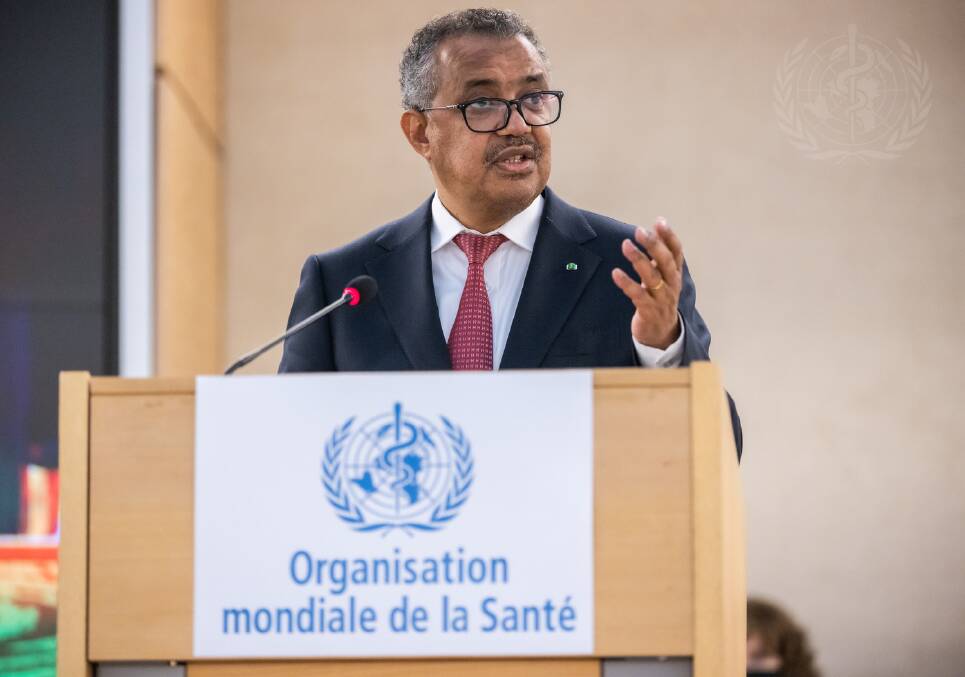
Despite its declaration that the global emergency triggered by the COVID-19 pandemic is over, the World Health Organisation has warned against dismantling pandemic response systems and to instead use the lessons learned to prevent another disaster in the future.
The WHO announcement came as reported cases across Australia rose 8.5 per cent last week. In the ACT, there were 826 new cases reported in the week ending May 5, with 38 people in hospital with symptoms linked to the virus, and three in intensive care.
Under-reporting is rife across all the state and territory health care systems.
WHO director-general Dr Tedros Adhanom Ghebreyesus tempered his declaration with caution, warning the virus remains a threat.
"This virus is here to stay," he said.
"It's still killing and it's still changing. The risk remains of new variants emerging that would cause new surges in cases. The worst thing any country could do now is to use this news as a reason to let down its guard, to dismantle the systems it has built, or to send the message to its people that COVID-19 is nothing to worry about."
ANU Professor Peter Collignon agreed that the time for mandates and restrictions was over and described the WHO declaration as appropriate "because of vaccines, antivirals and now high levels of hybrid immunity in 90 per cent plus of the Australian population".

"The effects [of COVID-19] to most individuals is much lower than three years ago [but] we still need care, especially for the most vulnerable and elderly," he said.
"But for most [people] now, it's a similar risk to flu."
ANU infectious diseases expert Prof Sanjaya Senanayake backed the WHO's call for health authorities to remain vigilant "but it's good, given how much devastation the pandemic has caused over the past three years, to finally hear some good news".
"And that's as much as this WHO announcement is about, as anything," he said.
"It's very much symbolic."
Prof Senanayake said the virus was still mutating, with around 600 subvariants of Omicron identified.
"If you look into the detail of the WHO leadership's announcement, they say that it's over as a public health emergency of international concern - but COVID is not over," he said.
"We are likely to see more cases during winter, in conjunction with the flu.
"We still need to make sure that people get tested, that we have facilities and resources for testing, make sure vaccines are available, and make sure that our health infrastructure can deal with sick people with COVID in terms of anti-virals, ICU beds and negative pressure rooms. And also, importantly, that we deal with disinformation."
An Australian Centre for Disease Control received $3.2 million in planning funds in October's federal budget, with more expected.
We've made it a whole lot easier for you to have your say. Our new comment platform requires only one log-in to access articles and to join the discussion on The Canberra Times website. Find out how to register so you can enjoy civil, friendly and engaging discussions. See our moderation policy here.







